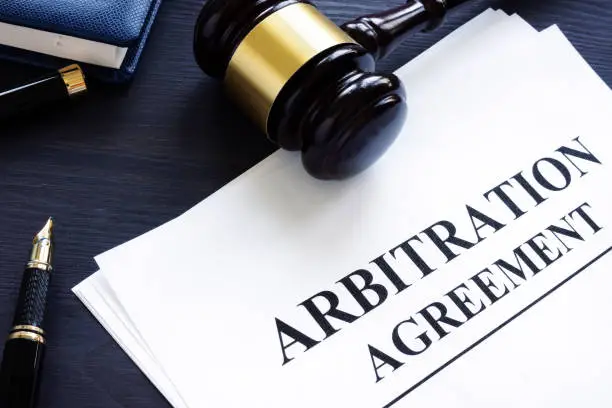Arbitration Lawyers in Kochi – Binding Dispute Resolution
Arbitration provides a private, structured process where disputes are decided by a neutral arbitrator instead of a public court. The arbitrator’s decision, known as an arbitral award, is legally binding and enforceable in India as a civil decree.
In Kerala, arbitration is increasingly used for commercial, corporate, property, and cross-border disputes because it combines the authority of law with the speed and confidentiality of private resolution.
Types of Disputes Commonly Arbitrated
- Shareholder and joint venture conflicts
- Breach of technology and SaaS agreements
- Construction and infrastructure project disputes
- Supply chain and distribution contract issues
- Cross-border and international commercial disputes
Arbitration clauses are now standard in many contracts, ensuring that disputes are directed to arbitration rather than prolonged litigation.
Advantages of Arbitration
- Confidentiality: Proceedings are private, unlike public court cases.
- Speed: Cases are often resolved faster than traditional litigation.
- Expert Decision-Makers: Arbitrators are often chosen for subject-matter expertise.
- Flexibility: Parties can design procedures to suit their dispute.
- Enforceability: Domestic and international awards are enforceable in Kerala courts.
Arbitration Process
1. Arbitration Agreement
Disputes are referred to arbitration through an arbitration clause in a contract or a separate agreement between parties.
2. Appointment of Arbitrator
Parties select a neutral arbitrator or a panel, often based on expertise in the subject matter.
3. Hearings & Submissions
Evidence, documents, and arguments are presented in a process that can be tailored to the dispute.
4. Arbitral Award
The arbitrator delivers a final, binding decision. Awards are enforceable under the Arbitration and Conciliation Act, 1996.
5. Enforcement
If the losing party fails to comply voluntarily, the award can be enforced in Kerala courts like a civil decree.
Domestic vs. International Arbitration
- Domestic Arbitration: Disputes where both parties are Indian entities.
- International Arbitration: Involves at least one foreign party. Awards made abroad under the New York Convention can be enforced in India, including courts in Kerala.
Interim Relief in Arbitration
Courts in Kerala can grant interim relief during arbitration proceedings, including:
- Freezing assets
- Preserving property in dispute
- Injunctions against transfers or business interference
- Securing amounts under claim
These interim measures ensure that the arbitration process remains effective and enforceable.
FAQs – Arbitration in Kerala
Q1. Is arbitration mandatory if there is an arbitration clause?
Yes. If a valid arbitration clause exists, courts generally refer disputes to arbitration under Section 8 of the Arbitration Act.
Q2. Can an arbitral award be challenged?
Yes, but only on limited grounds such as fraud, bias, or violation of public policy. Challenges are filed under Section 34 of the Arbitration Act.
Q3. How long does arbitration take in Kerala?
While timelines vary, arbitrations are generally faster than court proceedings. Many arbitrations conclude within 12–18 months.
Q4. Can foreign arbitral awards be enforced in Kochi?
Yes. Awards from New York Convention signatory countries are enforceable as decrees in Indian courts, including Kerala.
Closing Note
Arbitration offers a structured and enforceable alternative to litigation in Kerala. With binding awards, confidentiality, and flexibility, it provides individuals and businesses a reliable pathway to resolve disputes without the delays of traditional courts.


